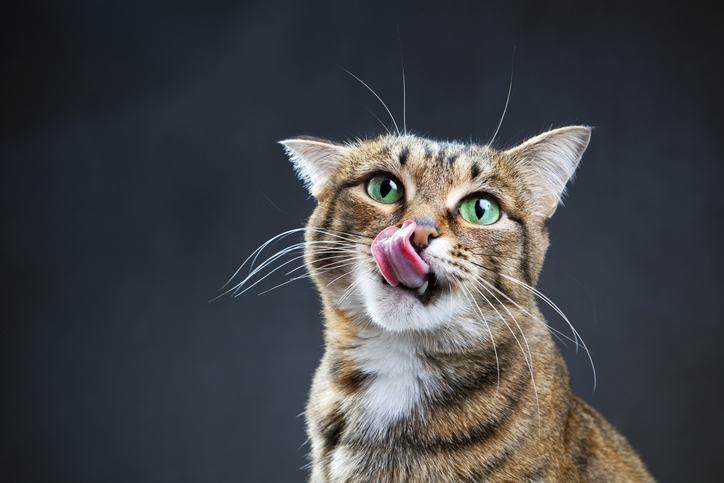Should Cats have Peanut Butter (Charlotte, NC)?
Have you ever wondered if you can share peanut butter with your feline friend? Do you know whether or not it’s safe to give cats peanut butter? If your cat does eat peanut butter, is there anything you need to be worried about?
As a cat owner, you probably already know how important it is to monitor what your pet eats carefully. You may also realize how frequently cats try to taste or consume food they shouldn’t have. By learning more about the foods that are and aren’t safe for your cat to eat, you can create a healthier and safer environment for your pet easily. Read on to find out more about whether or not your cat can have peanut butter.
Amount and Moderation
The most important factor to keep in mind when deciding whether or not to give your cat peanut butter is moderation. The amount of peanut butter consumed by your cat will directly impact the risk associated with eating it. As with most types of potentially harmful foods, the more your cat eats, the higher the risk; the less your cat eats, the lower the risk.
For example, if your cat licks peanut butter and you stop her from eating any more of it, you probably don’t have to worry about anything. She is likely going to be just fine, and at most, she might throw up if the peanut butter upsets her stomach a little bit. On the other hand, if your cat gets into an open jar of peanut butter and eats half of it, she may be very sick and could require a trip to the vet to help her get back to normal again.
If your cat has accidentally eaten peanut butter, it’s crucial that you work to determine how much she might have eaten. And if you’re giving your cat peanut butter on purpose—which is not recommended—never give her more than just a lick.

Harmful Ingredients in Peanut Butter
- Xylitol: The most concerning ingredient in peanut butter is Xylitol. This artificial sweetener is not found in all types of peanut butter, and most organic and all-natural varieties do not contain any artificial sweeteners at all. However, Xylitol can be found in sugar free peanut butters as well as some lower-cost varieties. Xylitol poisoning can be very dangerous to your cat and may even result in death in some instances, so it is very important that you refrain from giving your cat any foods that contain this type of sweetener. Even regular sugar is safer for your cat than Xylitol.
- Sodium: Peanut butter often has quite a lot of sodium due to the peanut roasting process. Sodium can contribute to heart health problems in cats just like it can in humans, and too much sodium may also lead to excessive thirst and urination, diarrhea, and vomiting. In some rare instances, sodium toxicity can lead to seizures as well.
- Fats: Peanut butter is an extremely fatty food made with a lot of oil—which is why you have to stir it up when you open it. Your cat needs some fats in her diet, but she should be getting all she needs from her regular cat food blend. Too much fat can be very dangerous.
Is Peanut Butter a Risk?
If your cat does happen to accidentally lick a little bit of peanut butter, she will probably be okay. However, you should double-check the list of ingredients on your particular jar to ensure it doesn’t contain Xylitol. If it does, you may want to closely monitor your cat or go ahead and take her to the emergency vet, depending on how much peanut butter she has consumed.
Peanut butter without Xylitol in it is not a serious health risk, especially if your cat has only eaten a lick or two of it. However, this doesn’t mean you should frequently offer it to your cat. Most of the time, it is best to avoid giving your cat any human foods at all, and especially those that contain sugar and fats.
Overall, peanut butter is not going to be a potentially fatal food for your cat to eat (unless it contains Xylitol), but it isn’t healthy for your pet, either. It is far better to give your cat small bites of plain, cooked meat than it is to give peanut butter or other sweet snacks as treats, so keep this in mind.
Conclusion
Based on this information, you should be able to better understand whether or not your cat can safely eat peanut butter. If you have any further questions or concerns about your cat’s health and wellness, or about anything she might have eaten, be sure to contact your vet or an emergency vet if necessary. Remember, too, that it is always best to stick to just cat food and cat treats for your pet.
If you have any questions regarding your cat’s health or would like to schedule an appointment, call us at (704) 588-4400. Here at Steele Creek Animal Hospital we are ready to help you and your pet with whatever you may need!
